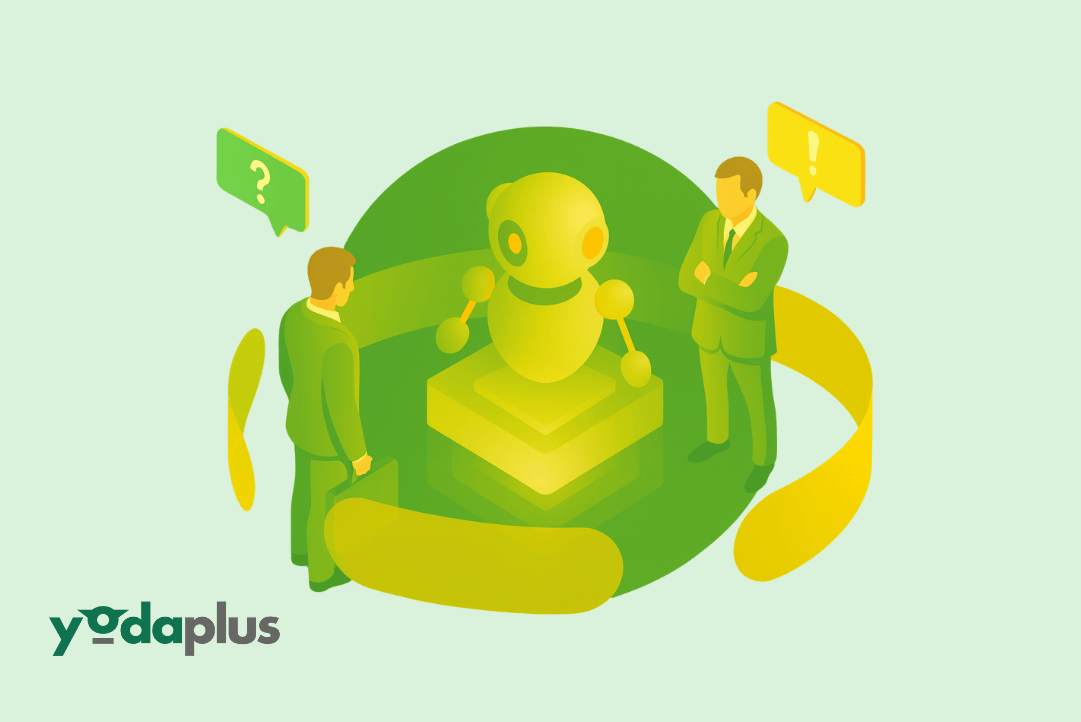
Temporal Context Windows: Planning Across Shifts and Weeks with Gen AI
September 4, 2025 By Yodaplus
Artificial Intelligence (AI) is changing how businesses and teams plan work over time. Traditional systems struggle with continuity when tasks move across shifts, days, or even weeks. That is where agentic AI and generative AI come into play. These technologies give organizations the ability to create AI agents that understand temporal context windows and manage workflows beyond a single session.
What Temporal Context Windows Mean
A temporal context window is the ability of an AI system to remember, reason, and act across multiple timeframes. Unlike standard task automation, which resets every session, AI agents that use temporal context can link past actions with future tasks. This allows businesses to plan more effectively, maintain continuity, and improve accuracy in decision-making.
For example, an AI agent in logistics can track shipments that take several weeks and adjust plans if there are delays. In finance, AI-driven analytics can prepare audit reports over time by collecting and analyzing data across multiple reporting cycles. Temporal context makes AI systems more reliable and practical for real-world use.
The Role of Agentic AI
Agentic AI extends the capability of Artificial Intelligence in business by allowing autonomous systems to reason and plan. With an agentic framework, organizations can deploy autonomous agents that do more than execute instructions. They can plan across shifts, remember what happened last week, and anticipate what needs to be done tomorrow.
Agentic AI solutions and agentic AI platforms help teams design intelligent agents that handle workflows with continuity. These workflow agents operate within ai frameworks that combine machine learning, NLP, and data mining. This integration allows AI agents to handle complex scheduling, multi-agent systems coordination, and scenario adjustments.
Generative AI for Temporal Planning
Generative AI plays a vital role in helping AI agents understand and act on long-term patterns. With gen AI tools, agents can create predictive models for recurring workflows. These models support financial forecasting, supply chain optimization, and customer support planning. Generative AI software combined with vector embeddings and semantic search provides deeper insights that help AI systems act on context across sessions.
Gen AI use cases for temporal planning include:
- AI in logistics: adjusting schedules based on delivery delays.
- AI in supply chain optimization: predicting disruptions and rerouting resources.
- Financial workflows: preparing audit reports and equity research reports across reporting cycles.
- Business operations: managing HR tasks or IT service requests that span multiple weeks.
How AI Agents Handle Context
AI agents that manage temporal context windows depend on memory, reasoning, and knowledge-based systems. These agents use AI-powered automation and AI-driven analytics to store and reference past information. They apply knowledge-based systems and semantic search to recall data from previous sessions. With reliable AI models, they deliver consistent outputs even when workflows extend over weeks.
An ai agent framework supports these functions by giving developers tools to design AI agent software with memory and reasoning capabilities. For example, autonomous AI can integrate self-supervised learning and neural networks to predict future needs. This is especially valuable in industries like logistics, finance, and healthcare, where tasks cannot be completed in a single step.
Benefits of Temporal Context Windows
Using AI systems with temporal context windows brings multiple advantages:
- Improved continuity: AI agents remember what has been done and pick up where work left off.
- Higher accuracy: With better data tracking, AI models reduce errors in multi-step processes.
- Stronger planning: AI innovation allows for proactive strategies rather than reactive fixes.
- Better collaboration: Multi-agent systems can coordinate across time to share progress and align outcomes.
Challenges in Temporal Planning
Despite the promise, building AI applications with temporal context is not without challenges. Explainable AI is needed to clarify how decisions are made across timeframes. Businesses also need responsible AI practices to manage risks and ensure AI risk management frameworks are followed. Integration with legacy systems and ensuring reliable AI models are further obstacles.
The Future of Agentic AI and Temporal Context
The future of AI lies in agents that not only perform tasks but also reason over time. Agentic AI use cases will expand as more industries adopt agentic AI tools for planning across shifts and weeks. With generative AI, autonomous agents, and AI-driven analytics, organizations will see more consistent and resilient operations.
Gen AI and agentic AI solutions will drive innovation in financial services, logistics, and business operations. As AI models improve with deep learning, self-supervised learning, and AI model training, the ability to plan across longer timelines will become a standard feature of AI systems.
Conclusion
Temporal context windows are transforming how AI is used in business. By combining agentic AI, generative AI, and AI-powered automation, organizations can plan work across shifts and weeks with greater reliability. Knowledge-based systems, semantic search, and AI agent frameworks make it possible to create AI agents that act with continuity and foresight.
For businesses, the ability to manage workflows across timeframes provides a competitive advantage. Smarter planning, stronger collaboration, and more reliable outcomes show that the future of Artificial Intelligence is not just about single actions but about reasoning across timelines. With gen AI, AI agents, and agentic frameworks, companies are building AI systems that think and plan like humans, but at machine speed.
Yodaplus’ Artificial Intelligence Solutions help organizations put this into practice by delivering workflow-aware AI agents designed for long-term, reliable planning.